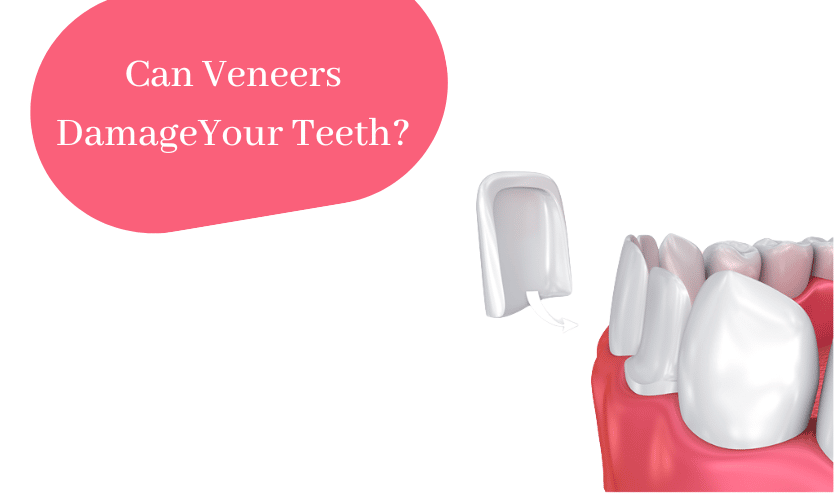Are dental veneers worth the risk of messing up your teeth? This blog post explores the pros and cons of dental veneers, what can go wrong, and answers frequently asked questions about dental veneers.
Introduction: Dental veneers are thin pieces of porcelain or composite material designed to fit over the surface of your teeth to improve their aesthetic appearance. They can be used to fix chipped or broken teeth, hide discoloration, close gaps between teeth, and even reshape a tooth’s size or shape. While dental veneers offer a great solution for those seeking an improved smile, they do come with some risks that must be considered before making any decisions.
Advantages of Dental Veneers:
Aesthetic Benefits
Improved Appearance
As dental veneers are designed to fit seamlessly over the surface of your teeth and blend in with the rest of your smile, they can offer a more natural-looking appearance than dental crowns or bridges.
Quick Results
With dental veneers, you can get an improved smile in as little as two dental visits. Compared to orthodontic treatments that require months or even years to complete, dental veneers provide quicker results.
Long-Lasting Result
Depending on how you care for them, dental veneers can last from 10 to 15 years.
Risks of Dental Veneers:
Damage to Teeth
Tooth Sensitivity
Placing dental veneers requires removing a small amount of enamel from the surface of your teeth, which can make them more sensitive to hot and cold temperatures.
Infection Risk
If dental veneers are not properly placed or cared for, there is an increased risk of dental infection.
Potential Discomfort
The process of placing dental veneers may cause some discomfort due to the placement procedure and recovery time afterwards.
FAQs:
Q1: Do dental veneers require special care?
A1: Yes, dental veneers will require special care in order to maintain their aesthetic appearance and longevity. This includes brushing and flossing regularly, avoiding eating hard or sticky foods that can damage them, visiting the dentist twice a year for professional cleanings and checkups, and wearing a night guard to protect against tooth grinding while sleeping.
Q2: How long will dental veneers last?
A2: The lifespan of dental veneers can vary from person to person, but on average they can last 10-15 years.
Q3: Can dental veneers cause cavities?
A3: While dental veneers cannot cause cavities, if any pre-existing dental issues such as decay or infection are present, the risk of dental problems increases. It is therefore important to have a thorough dental evaluation before considering dental veneers.
Conclusion:
While dental veneers offer a great solution for improving the appearance of your smile, they do come with risks that should be considered before making any decisions. If you are considering dental veneers, it is important to discuss all of the potential risks and benefits with your dentist.
